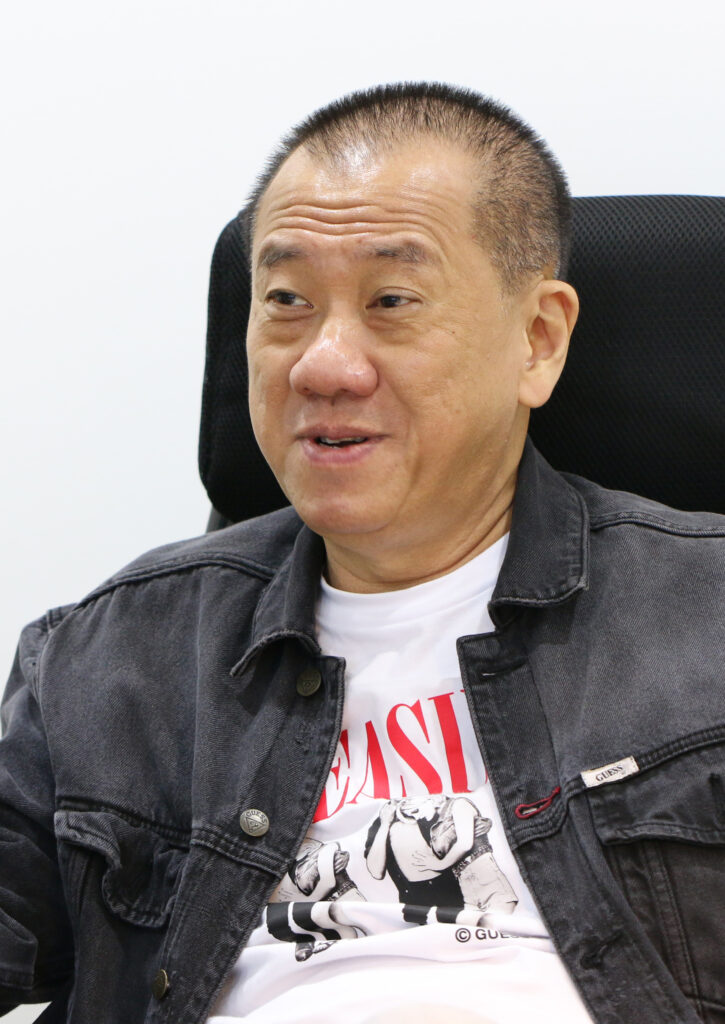
When internationally acclaimed companies need a partner they can trust to ensure that their brand flourishes in the Southeast Asian market, Victor Siasat is the person they turn to.
Never one to keep his head down when it comes to a new venture, Siasat is an entrepreneur at heart. In the last 30 years, he has built a reputation for working with industry titans in gaining a major foothold in the Philippines for their brands. From GUESS to Vans to Kiko Milano, Victor is zealous in his approach to building strong relations between foreign retailers and their audiences in Southeast Asia.
“We like working with like-minded people, people who understand what they’re talking about,” Siasat said. “We’re here to maximize opportunities and we’re a very prudent operator.”
If you asked him directly, Victor would tell you that the lessons he learned from his upbringing has shaped his determined yet composed attitude towards business. Victor’s parents were Chinese immigrants who came to the Philippines from a modest background. A proud kid, Victor wanted to prove to himself and to others that despite not being born into abundance, he still had a lot to show.
“Growing up in that environment taught me a lot of things. I see things very quickly. I can solve problems very quickly,” Siasat said.
“As a child, I was very vocal. A lot of people saw that and said — ‘maybe you’re right, but you’re a nobody, you have no right to speak.’ From there, I learned to be a little more reserved.”
This experience pushed Siasat to strive towards financial independence and motivated him to knuckle down to support his parents as well.
Siasat started his first business immediately after finishing college in 1982 — a factory. As luck would have it, Victor graduated into one of the most tumultuous decades in Philippine history: Ninoy Aquino was assassinated, the nation was facing political instability, and the peso’s value went from eight to 20 pesos almost overnight. Under these circumstances, Siasat reasonably shifted to subcontracting.
In spite of the uncertainty facing the Philippines’ during those years, Siasat did well for himself, growing to five factories in a short span. By the end of the decade, however, Siasat ended up with close to nothing in his pockets. Subcontractors in regional competitors China and Vietnam were becoming more profitable in the export market, and bankruptcy was looming over Siasat’s head.
Throughout this time, Victor often dined at a upscale and chic French restaurant in Manila. There, he met restaurant owner and future GUESS partner Michel Stamati, when the latter struck up a conversation with Siasat. Stamati was planning to pivot back into apparel, an industry he had experience in when he was living in France. Stamati knew Georges Marciano, the original founder of GUESS. Siasat, with his experience in exports, understood the logistics of operating in the Philippines and had connections in the right places. Together, they brought the GUESS brand to the Philippines in 1991. By 1995, they opened 43 GUESS stores across the nation.
Their accomplishment in setting up GUESS snowballed Siasat into launching more and more ventures, finding incredible success. In 1998, Siasat acquired Mossimo. In 2000, he brought Gold’s Gym to the Philippines. In 2003, Siasat excitedly introduced Italian fashion brands Terranova and Calliope. And in 2005, Siasat opened 10 Mango stores. More than 30 years after the launch of GUESS, Trimark Group Holdings operates over 50 brands in a variety of industries, from luxury fashion to food to media. Trimark has grown to be a leading omni-channel retailer that operates across Southeast Asia, employing over 5,000 people.
“From brand representation, we sort of graduated to brand ownership. And from one country distribution we’re now getting into multiple territories,” Siasat shared. “During the pandemic we started dabbling into other things like transport, cooperatives, farming, and renewable energy.”
While Siasat has no plans to retire, his objective nowadays is figuring out how to pass along his experiences in entrepreneurship to his family and looking towards new directions for Trimark in the future.
“We’re structuring it so that the next generation can understand and take care of this,” Siasat said. “But I want to learn some more. We’re nurturing the businesses that we have, but we’re improving and expanding.”
“Every time we do this, we do it better, because we know better. Everything’s an opportunity.”







